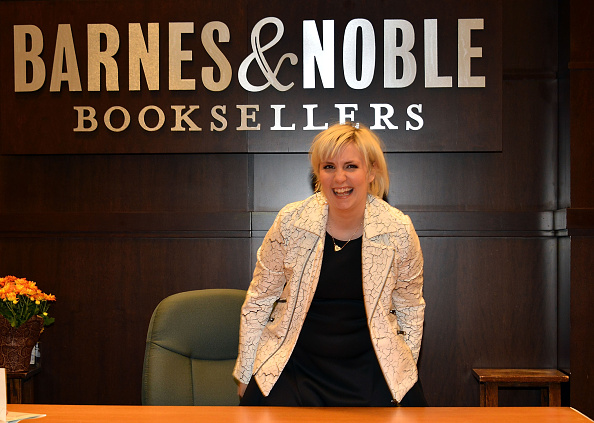If someone were to ask you to name one millennial male who exemplifies most of the social, emotional and economic woes of this generation, you’d be staring at your shoes for a moment or two. But if asked the same question in regards to women, one name will undoubtedly arise: Lena Dunham. The 28-year-old actress, director, screenwriter and show-runner has come to personify, for some at least, an entire generation of young women’s search for their identity, sexuality, independence, self-worth and personal happiness. How has she inherited this mantle? Is she insightful and probing, or merely depicting another lost generation reeling with student loan debt and body issues?
Lena Dunham recently released a book titled Not That Kind of Girl. The press preceding the release of the book was not excerpts of anecdotes about her artist parents, or her discovery by Judd Apatow that jump-started her career; instead, the book was promoted with her examination of an incident of sexual assault that she endured while at Oberlin College. She stated that at that time she didn’t realize it was rape, but has since come to fully understand her victimization. Like many things that define Dunham’s public, this admission can be read two ways. 1) This is a brave act in which she has pulled the curtain on a painful and harrowing experience by writing of her trauma. In effect, she is also advocating that other women don’t allow themselves to be victims of such terrible acts without speaking out against sexual violence. 2) She has a terrifying experience that will grab her readers and incite discussion, which will undoubtedly lead to rising book sales. So which is it? Is Dunham using her troubling experience to garner pity, respect and revenue, or has she added another log to the fire that is this nation’s long-overdue discussion of sexual violence and its repercussions?
Among the familiar elements that define Dunham’s runaway HBO success “Girls” are: relateable twenty-something status, wit, hip and edgy fashion, and Lena Dunham naked. Often naked. Lena is not a size-zero and there’s no doubt that it’s a calculated move on her part. Audiences are more than familiar with nudity on TV now. Since the dawn of “The Sopranos,” naked women (only women, suffice to say that’s another discussion entirely) have been a regular fixture on premium cable. It’s always a stripper, a Targaryen queen, or a Roman slave, never a hippy wannabe writer in Brooklyn. Perhaps this is the first time in recently years that nudity isn’t primarily designed to titillate. It might also be the first time in which the nudity is more geared toward female viewers than male (because duh, women are the target audience). Like the admission in her book, her sex scenes in “Girls” have specific purposes. She is challenging the saturated market of ideal females in magazines, TV and advertisements with her very own body.
While clearly it took some nerve and courage to choose to put her not-so-ideal-by-societal-standards body on display, just as it did to admit that she was raped while in college, this is as much about Dunham as it is about women’s issues in 2014. Let’s consider for a second the choice to title her show ‘Girls.’ Although the title is simple, it assumes a great many things. Is this meant to depict the struggles and successes of all young women? Because all young women aren’t struggling bohemian creatives in New York. In fact, that might be the only demographic of women who have no difficulty discussing neo-feminism and sexual assault openly. What about the millions of suburban and rural “girls” in America? Where is their story? Moreover, the men depicted in “Girls” are… not great. Adam Driver, the actor who plays Dunham’s primary love interest, is a self-involved, rude struggling artist. Now, I will not even attempt to defend the depiction of most women in television and movies. They are clearly waify, dutiful, gorgeous women almost always. But ‘Girls’ isn’t the average TV show, right? They are pursuing a more realistic take on romance and relationships. So how has it so readily adopted the inverse of every other show? The obvious answer is that the sexy, not attainable, types always make for better entertainment, but does that somehow lessen the worth of her more bold choices?
There is no arguing that Dunham is crafting a brave, distinct voice in television, but she is also creating an urban liberal narrative that doesn’t speak to the women who desperately need to know they have choices and a voice of their own.



















-300x200.jpg)






